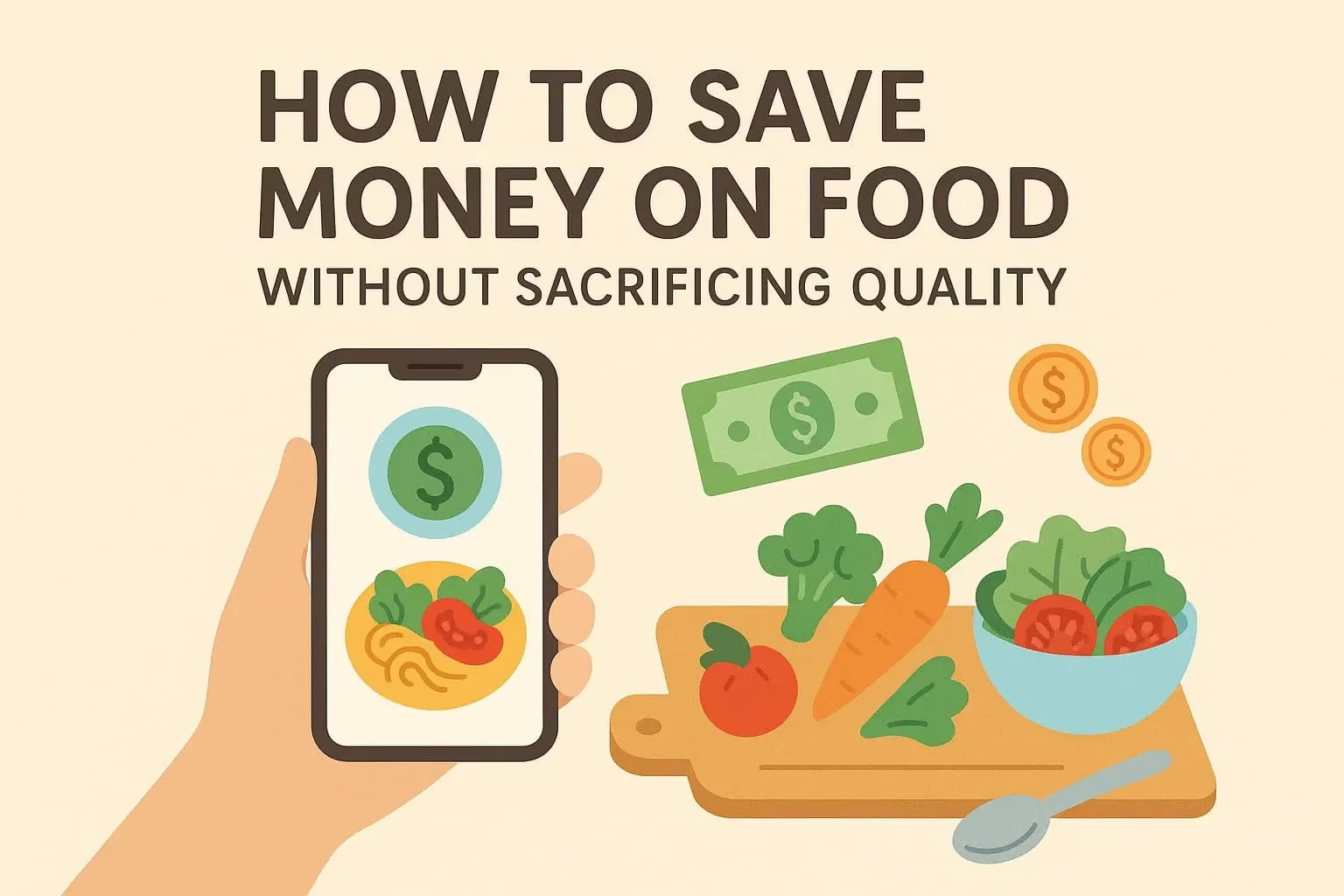Transitioning to a plant-based lifestyle can be incredibly rewarding — for your health, the environment, and even your wallet. But one common misconception is that eating plant-based is expensive. The truth? With the right strategies, a plant-based grocery list can be budget-friendly, nutrient-dense, and deeply satisfying.
In this article, you’ll learn how to grocery shop on a budget for a plant-based kitchen — including a sample list, money-saving tips, and ingredient swaps that won’t break the bank.
Why Plant-Based Doesn’t Have to Mean Expensive
Many of the staples in a plant-based diet are among the cheapest foods in the store:
- Rice
- Beans and lentils
- Oats
- Seasonal vegetables
- Potatoes
- Bananas
The key is to buy whole, minimally processed foods, cook at home more often, and make smart substitutions.
Step 1: Plan Before You Shop
Planning your meals for the week saves money and avoids waste.
How to do it:
- Choose 2–3 main dishes you can rotate
- Build a grocery list based on those recipes
- Use similar ingredients across meals (e.g., buy carrots and use them in stir-fries, soups, and salads)
Bonus tip: Check your pantry first and shop your shelves before the store.
Step 2: Build Your Grocery List Around These Categories
🥣 Whole Grains (Buy in bulk if possible)
- Brown rice
- Quinoa
- Oats
- Whole wheat pasta
- Cornmeal
🫘 Legumes and Plant Proteins
- Dried or canned beans (black, kidney, chickpeas)
- Lentils (red, green, brown)
- Split peas
- Tofu or tempeh (buy in bulk and freeze if discounted)
🥦 Vegetables (Focus on seasonal and frozen)
- Cabbage
- Carrots
- Onions
- Potatoes or sweet potatoes
- Frozen spinach, peas, green beans, broccoli
🍎 Fruits (Buy what’s in season)
- Bananas
- Apples
- Oranges
- Frozen berries for smoothies
🧂 Essentials and Pantry Staples
- Olive oil or vegetable oil
- Salt, pepper, herbs, and spices
- Vinegar (apple cider, white)
- Soy sauce or tamari
- Nutritional yeast (for flavor and B12)
🥜 Healthy Fats
- Natural peanut butter
- Sunflower seeds or flaxseeds
- Chia seeds (optional but powerful)
Step 3: Budget Grocery List for the Week (Under $40–50)
This list feeds 1–2 people for 5–7 days with breakfast, lunch, and dinner.
| Category | Item |
|---|---|
| Grains | Brown rice, oats, whole wheat pasta |
| Beans/Legumes | Chickpeas, black beans, red lentils |
| Veggies | Carrots, onions, cabbage, sweet potatoes |
| Fruits | Bananas, apples |
| Frozen | Mixed vegetables, spinach |
| Extras | Peanut butter, soy sauce, olive oil |
| Herbs/Spices | Garlic powder, cumin, paprika, salt |
Step 4: Smart Substitutions to Save Even More
| Expensive Item | Budget Swap |
|---|---|
| Almond milk | Homemade oat milk |
| Avocados | Hummus or tahini |
| Cashews | Sunflower seeds (for creamy sauces) |
| Fresh berries | Frozen berries |
| Vegan cheese | Nutritional yeast or blended tofu spreads |
| Fancy protein bars | Homemade energy balls with oats & PB |
Step 5: Cook in Batches and Use Leftovers
Meal prep ideas:
- Cook a big pot of lentil soup — eat some, freeze the rest
- Make rice + beans + salsa + greens = multiple meals
- Roast a tray of veggies and use them in bowls, wraps, or pasta
- Prepare overnight oats for the week ahead
Cooking in batches not only saves time — it prevents food waste and reduces the temptation to eat out.
Bonus: Where to Shop for Budget Plant-Based Staples
- Discount grocery stores: Great for canned goods, grains, and frozen foods
- Ethnic markets: Affordable spices, lentils, tofu, and specialty produce
- Farmer’s markets (late hours): Sellers often discount unsold produce
- Bulk bins: Perfect for oats, beans, spices, and rice
- Online deals: Some sites offer bulk staples with free shipping
Quick Recipes You Can Make with Budget Ingredients
1. Lentil soup with carrots and spices
2. Chickpea stir-fry with frozen vegetables and rice
3. Pasta with garlic, olive oil, and steamed greens
4. Mashed sweet potato with black beans and salsa
5. Overnight oats with banana and cinnamon
Eat Well Without Overspending
Eating a plant-based diet on a budget is not only possible — it’s practical, healthy, and deeply satisfying. By focusing on whole foods, meal planning, and smart shopping, you can enjoy delicious meals while keeping costs low.
The more you practice, the easier it becomes. Start with a simple list, stick to your plan, and let your kitchen become a place where good food and financial wellness meet.






